PRO 4K XL
Printer safety & manuals
Printer Overview
The diagram below illustrates the main components of your PRO 4K XL
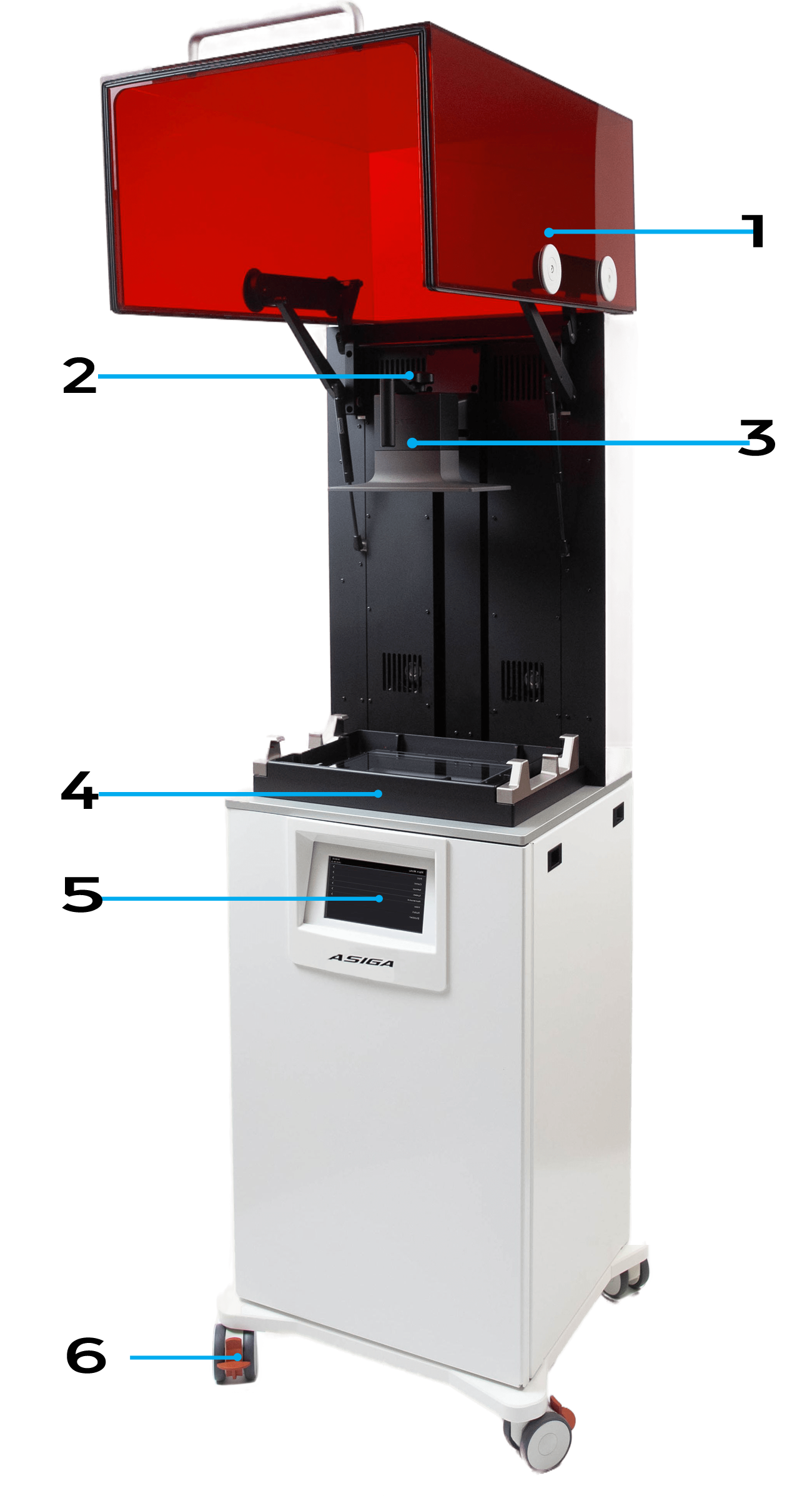
Bodywork
Below is a summary of the main Components on the PRO 4K XL.
Hood
The PRO 4K XL Hood is constructed of UV blocking hard plastic. This protects the resin from being cured by natural light & the user from UV light emitted.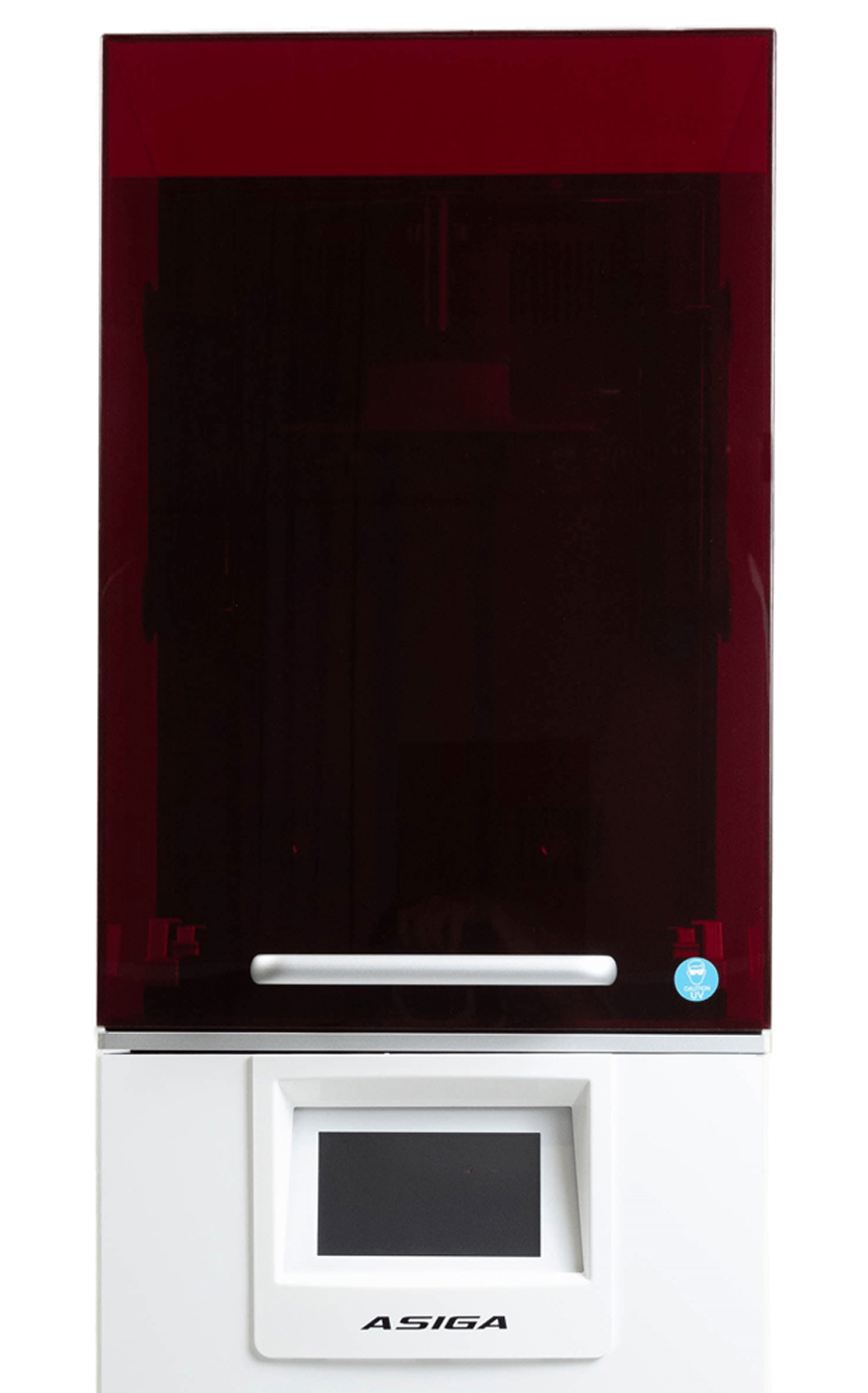
Front Panel
The front panel is the white surround that contains the LCD screen. The LCD screen is the main control panel for the printer.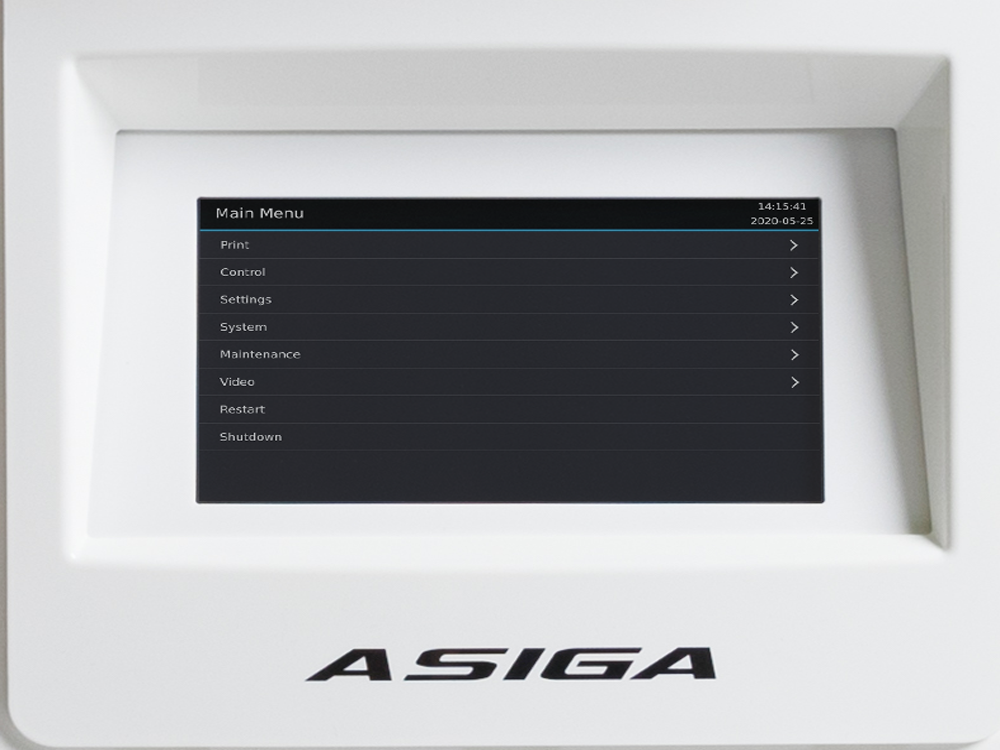
Rear Covers
The top cover is constructed of white aluminium and a crisp black plastic fan cover that houses the connectivity ports.
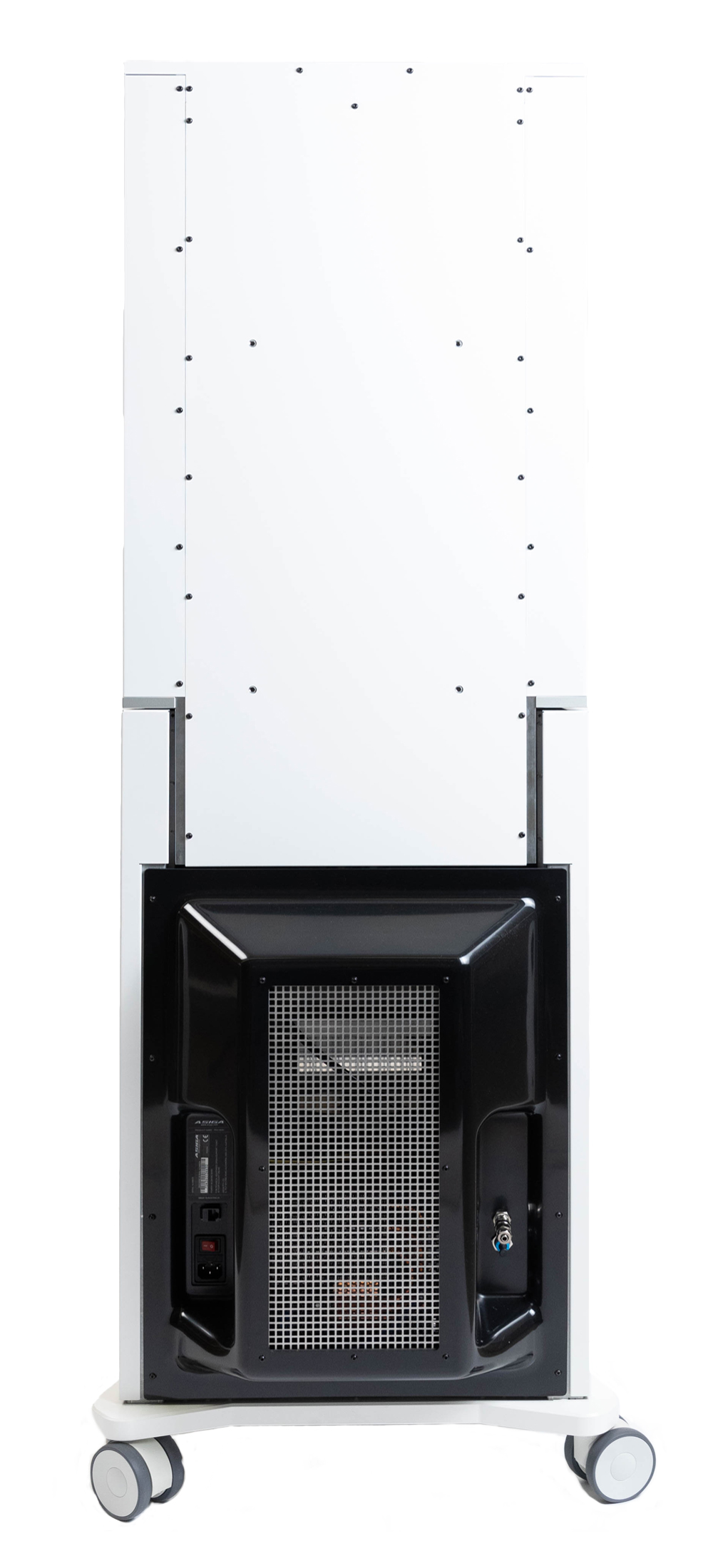
Power/Network connection panel & Optional Gas Inlets.
- Ethernet port
- Printer serial
- Power switch
- Power connector
- Quick release gas inlet/outlet
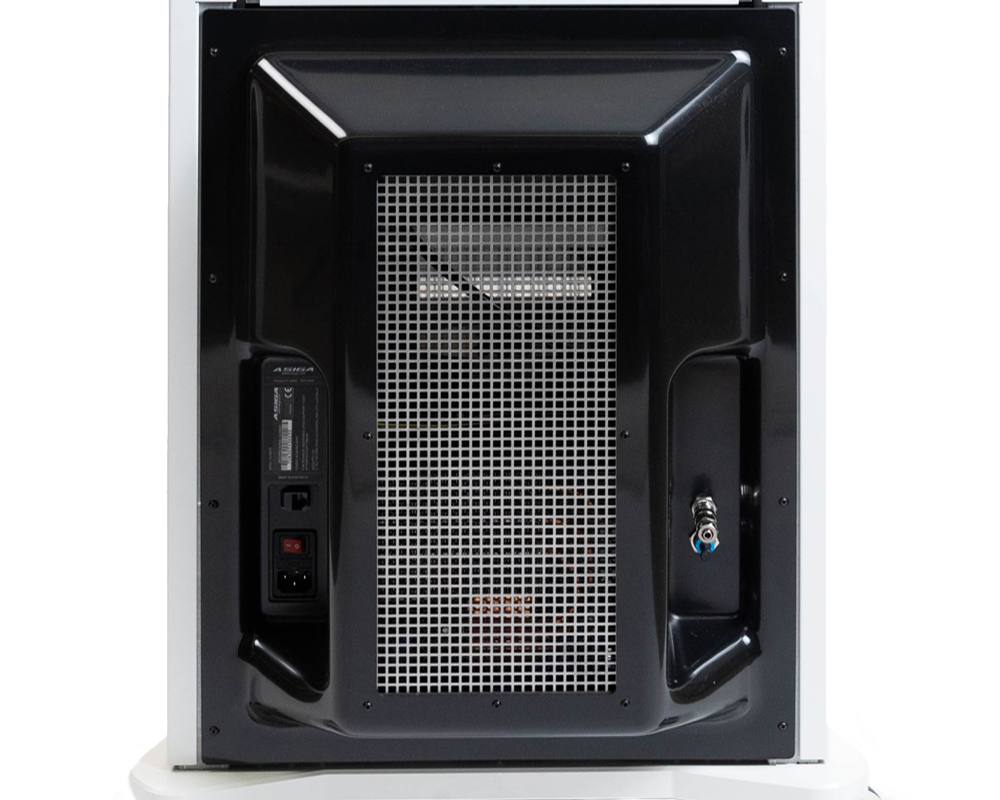
Side panels
The side panels are constructed of metal and painted white.
These can be removed by disengaging the black plastic clips and hinge open.
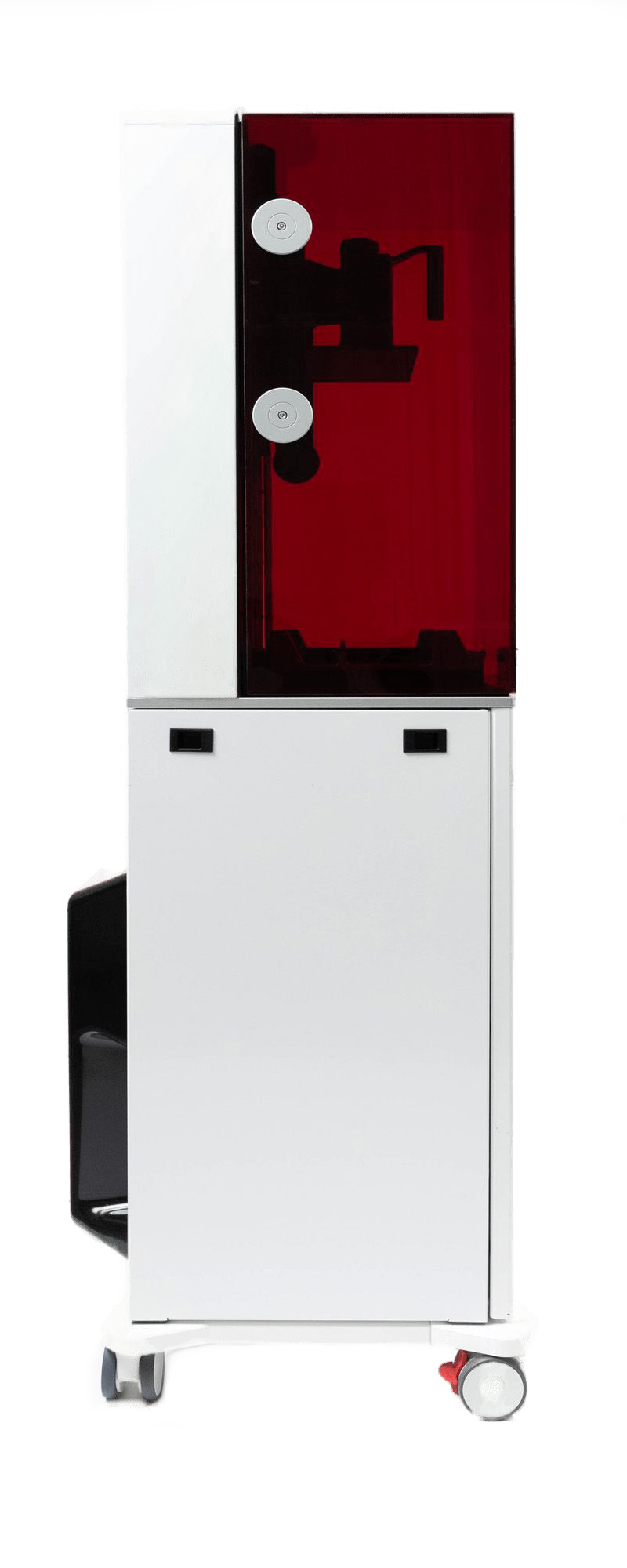
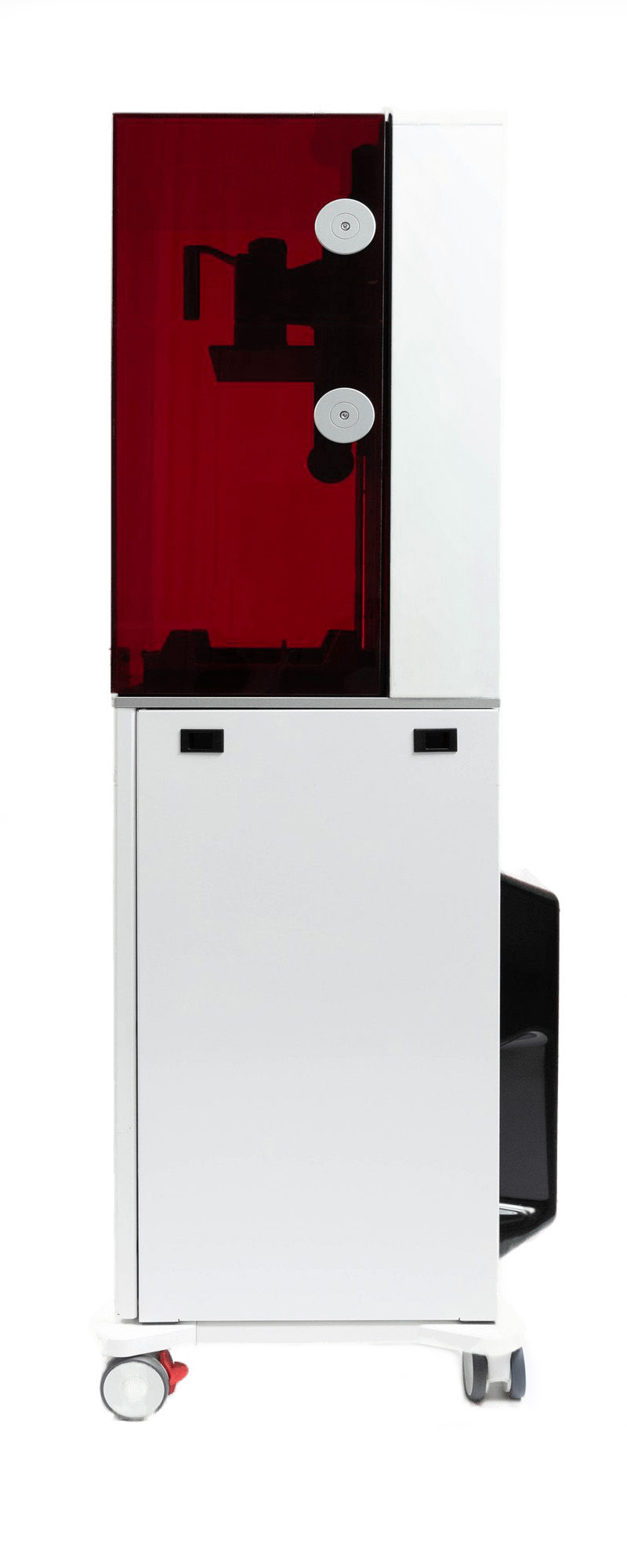
Wheels
The PRO 4K XL comes with four wheels. Two leader wheels that lock in place and two followers.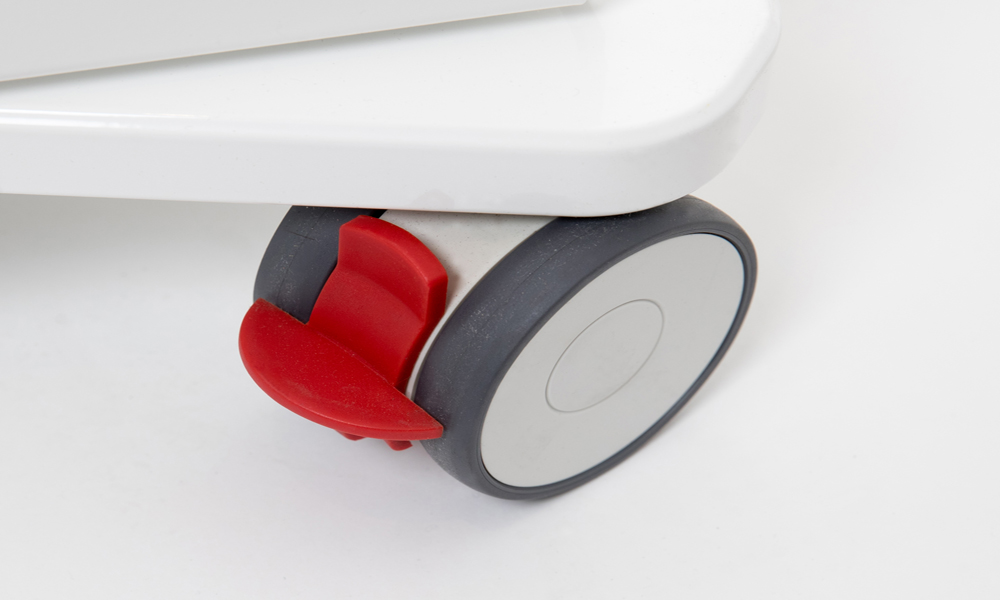
Under the hood
Build Platform Holder
The build platform holder is the arm that protrudes from the vertical stage. The build platform calibration screw is located here.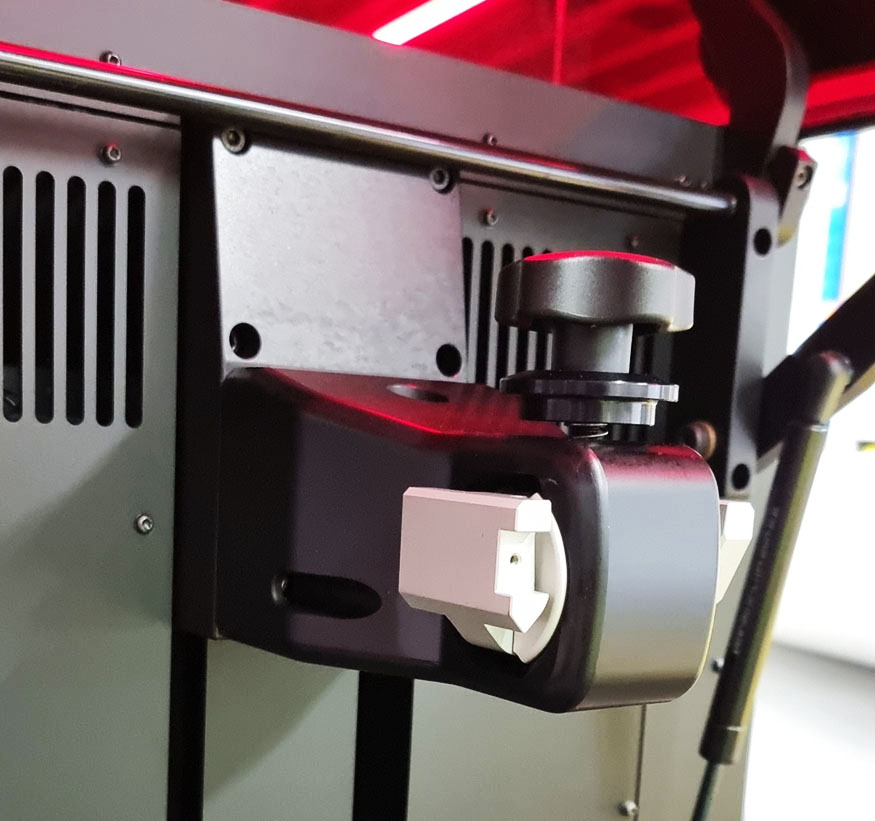
Build Platform
The build platform is the centerpiece of the PRO 4K XL. It is engineered from anodised steel which makes it extremely durable.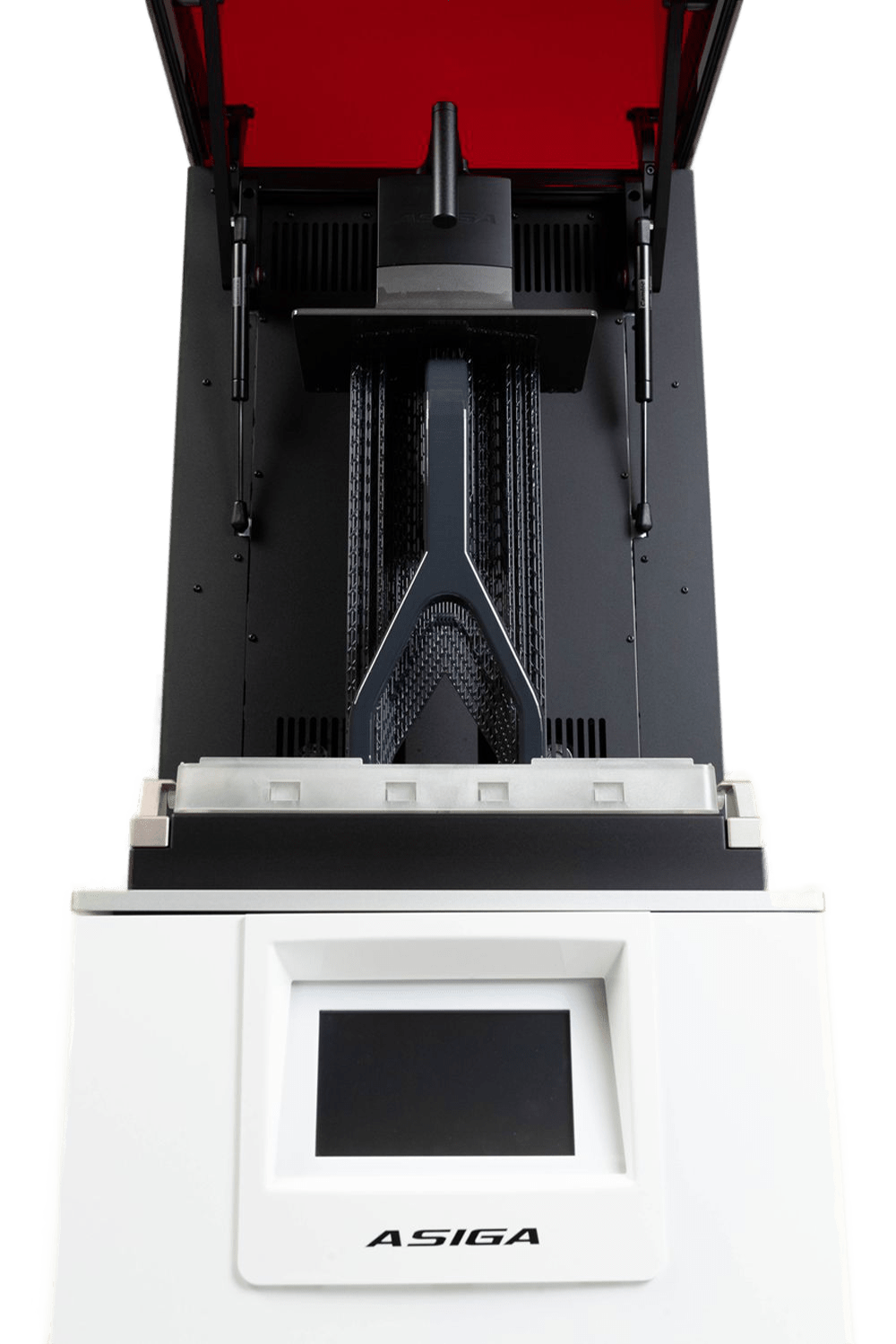
Basin
The basin holds the resin tray and acts as a gateway between the resin and UV light. This glass plate must be kept crystal clean and free from debris.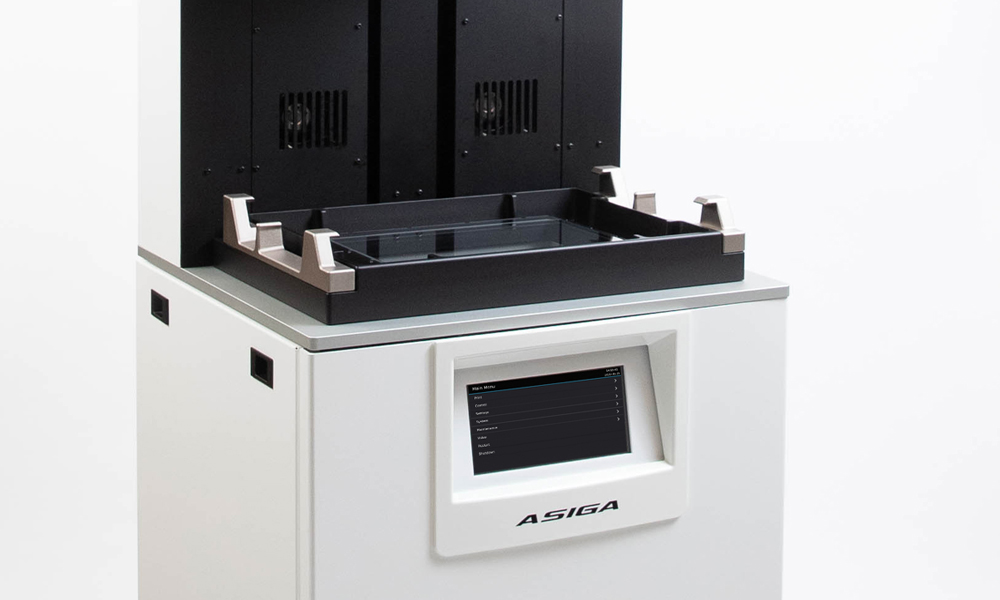
Build Tray Sliders
Anodised steel sliders to hold the build tray in place during printing.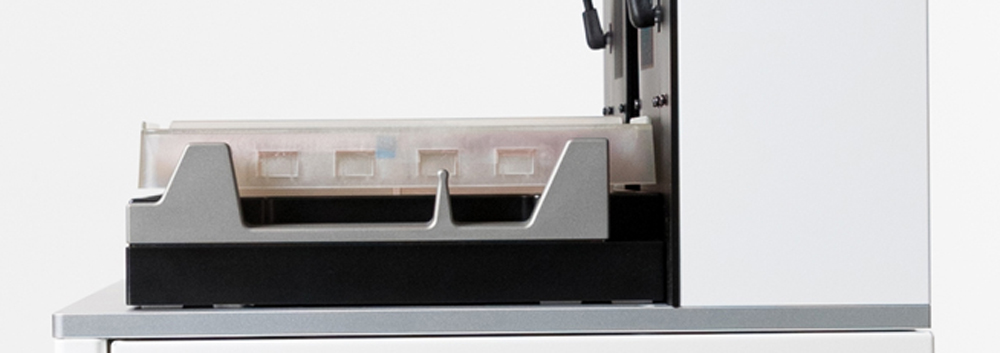
Build Tray
Build trays contain the resin during the printing process. They are constructed of a flexible film within a rigid plastic frame. Asiga recommends one Build Tray per material. Do not use the same Build Tray for multiple materials as this may create material cross-contamination and transfer of uncured materials.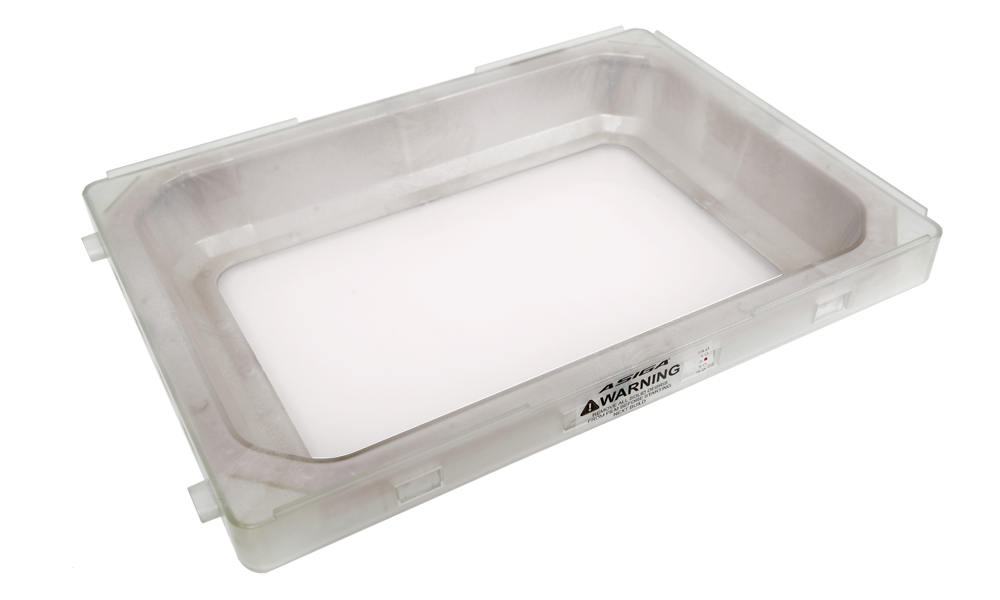
Asiga SPS™ technology
Asiga SPS™ technology is managed by 4 position encoders that surround the basin glass. These sensors detect actual build platform positioning to ensure the layers in your 3D printed part are formed accurately.